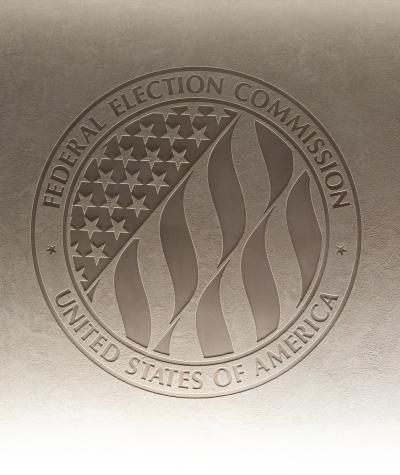In the early '90s, I served on and eventually became the Chairman of one of the lesser known but also potentially important federal agencies in Washington, the Federal Election Commission (FEC.)
This agency was created by Congress following the Watergate scandal, with the goal of administering and enforcing campaign finance laws and ensuring the public has access to information about the raising and spending of money used to influence elections for president and Congress.
My interest in the FEC started early in my career. After finishing law school, I came to Washington to work for the Department of Justice and ended up with a law firm that was representing then Vice President George Hebert Walker Bush, who was running for president. I ended up working full time on that campaign, and I got a great introduction to how campaigns raised and spent money, how the FEC regulatory system worked (or did not work) and what the main problems with our campaign finance system were.
After that experience, I think I became one of the rare lawyers who knew what the FEC was and had a strong desire to serve on the Commission. The Bush administration Personnel Office asked if I would be interested in doing something for the administration. I excitedly agreed and told them that I wanted to be considered for the vacancy on the FEC that needed to be filled at that time.
The reaction was telling — they said “You’re kidding? You’d take this? Great — we were wondering who to put there.” Several of my friends and mentors also thought that this was a bad idea, viewing the FEC as “a backwater commission,” that it “didn’t do anything” or that it “wouldn’t really challenge [me.]”
But I was young and thought I knew better. As an outsider, I was puzzled by why the FEC appeared to be ineffective and thought that I could bring my knowledge of campaigns actually worked to the Commission and make it a better place.
In my time at the FEC, I accomplished all that I could and gained a reputation for being a Commissioner and Chairman who took the enforcement of campaign finance law seriously. By the end, there was a lot of blowback because the Commission had started to do more to increase transparency and accountability. It also issued detailed regulations on the “personal use” of campaign funds — something that many members of Congress opposed even though they had passed the law prohibiting it. After I left the Commission, lawyers for the Republican Party were recommending replacements for me to Republican leaders in Congress, and I’m told that Sen. Mitch McConnell — an opponent of the FEC and campaign finance reform — said, “Whatever we do, no more Trevor Potters.”
I think part of why I gained this reputation was that it was undeniably easier to get more done during the time I was serving than it is for the Commissioners who serve today, who split on partisan lines and therefore deadlock on every single major decision. During my tenure on the FEC, there was consistent, bipartisan compromise between the Democratic and Republican Commissioners — something I pushed by reaching across the aisle. We would talk through the cases, ensure that each party was treated fairly, that no party took advantage of the other and that the laws were applied evenly across the board. We also generally believed in the importance of disclosure laws that would protect voters’ right to know who is spending money to influence their vote.
Since the mid-2000s, however, this has changed. Congressional opponents of campaign finance reform have confirmed Commissioners ideologically opposed to the agency’s core mission. Due in large part to this, between 2012 and 2019, the FEC could not take meaningful action on over half of all enforcement matters.
Because of the agency’s structure, preventing the FEC from doing its job has been relatively easy. Currently, the votes of four of the six Commissioners are required in order to write new rules and take substantive action on an enforcement matter, including complaints against alleged wrongdoers. Thus, any three Commissioners can stop meetings from occurring or investigations from even being opened in the first place by simply refusing to move forward.
The deadlock and dysfunction that has come to plague the FEC poses a grave threat to our democracy. The Commission’s decisions directly impact the ability of everyday Americans of all political persuasions to make their voices heard on the issues that matter most to them — like obtaining good health care, addressing the rising cost of living or creating a fairer tax system.
Over the past few years, pro-democracy bills before Congress, like the For the People Act and the Freedom to Vote Act, have proposed reforms to the FEC that would improve the confirmation process, change the number of Commissioners needed to take meaningful action and promote cross-partisan agreement on the Commission. We must keep trying to pass federal legislation that would make meaningful updates to campaign finance law and the FEC to combat corruption (or the appearance of corruption) and increase voters’ trust in our democracy.
The failure of the FEC to enforce campaign finance laws has resulted in an explosion of secret spending and our politics increasingly being rigged in favor of special interests. We must guarantee that the FEC can do its job of overseeing the integrity of our country’s political campaigns to protect voters’ right to know which special interests are spending vast sums of secret money. Nearly 50 years after it was formed, the agency's work is more important than ever.

